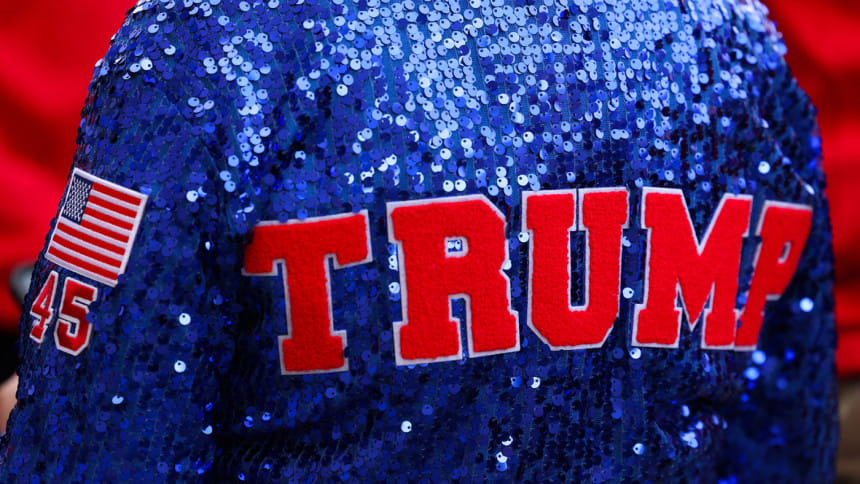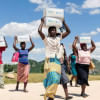UN agencies tremble as Trump term nears

With just days to go before Donald Trump again enters the White House, anxiety is rising across UN agencies fearful he could wreak even more havoc than last time.
During Trump's first term in office, Washington slashed its contributions to United Nations operations and agencies, stormed out of the UN Human Rights Council, exited the Paris climate accord and the education agency UNESCO, and began withdrawing from the World Health Organization.
But while Trump's first administration did not get to the harshest measures until later in the term, experts warn things could move faster this time.
"I don't think Trump is going to hang about so long this time," Richard Gowan of the International Crisis Group told AFP.
"He's likely to walk away from those UN mechanisms and arrangements that he boycotted before without much ceremony."
The United States remains the largest donor to the UN, which is already facing significant budget pressures, spurring palpable anxiety over the prospect of funding cuts.
UN officials have scrambled to emphasise the value of US partnership.
"The cooperation between the United States and the United Nations is a critical pillar of international relations, and the UN system," Stephane Dujarric, spokesman for UN chief Antonio Guterres, told AFP.
But the love is not always mutual.
Republican Congresswoman Elise Stefanik, whom Trump has tapped to become his UN ambassador, has described the organisation as "a corrupt, defunct and paralysed institution".
And fears abound that Republicans in Congress could push ahead with a bill calling to defund the organisation completely.
- Total exit 'unlikely' -
Jussi Hanhimaki, an international history professor at the Geneva Graduate Institute, played down that threat.
"The total exit is unlikely," he told AFP, suggesting that Washington would not want to cede the leverage it has within the UN system.
"The best argument against the US wholesale withdrawal is (that) China will... become more and more influential," he said.
During Trump's first term, China and its allies clearly expanded their influence in the bodies he left in Geneva, like the Human Rights Council.
Outgoing US ambassador to the UN in Geneva, Sheba Crocker, highlighted that "some of our strategic rivals are heavily invested in promoting their interests in Geneva".
That, she told AFP in an email, "is why I believe the United States will remain engaged, and why I believe it is in our interest to do so".
The exiting administration of Joe Biden has protected against another high-profile walk-out from the Human Rights Council, by opting not to re-apply for membership.
Hanhimaki suggested that the World Trade Organization might face "the most challenging times" to start with, pointing to Trump's focus on imposing tariffs on traditional foes and allies alike.
- 'Very worried' -
There is particular concern about funding for reproductive rights-linked programmes.
During Trump's first term, Washington cut funding to the UN Population Fund (UNFPA), which works to improve reproductive and maternal health worldwide.
"We're very worried," said Rachel Moynihan, deputy director of UNFPA's Washington office.
But the agency, which says US contributions allowed it to prevent 3,800 likely deaths during pregnancy in 2023 alone, is accustomed to seeing its funding cut during Republican administrations.
"We are a resilient agency," Moynihan told AFP.
Other agencies may be less prepared, with UN Women expected to be in the firing line, as was the UN rights office.
And word on the street in Geneva is that the new Trump administration aims to withdraw from the WHO on day one.
Suerie Moon, co-director of the Global Health Centre at the Geneva Graduate Institute, said that would be a mistake.
"Having a well-functioning, impartial WHO is very much in the US national interest," she told AFP.
Another withdrawal would certainly leave Washington with "a less influential voice", she warned.
- 'Painful' -
The WHO has been seeking to broaden its funding base since the last debacle, but Washington remains its largest donor.
Asked last month about the threat, WHO chief Tedros Adhanom Ghebreyesus told reporters he believed the new administration would "do the right thing".
Moon said the WHO could clearly survive a US withdrawal.
"But it would be painful... The real question is, which priorities get downgraded, which programmes?"
And "what do other countries do on the finances?"
Last time Trump was in power, European countries rallied to keep targeted UN agencies afloat.
But the Europeans now have "made it clear that they do not have spare cash lying around... to ride to the rescue of the UN", said Gowan, of the International Crisis Group.
Agencies likely to see funding slashed are already mulling alternatives and cost cuts, observers say.
Hanhimaki said reflections on alternative sources of funding were healthy.
"It's quite foolhardy to rely upon a country that is politically volatile as your long-term source of funding."

 For all latest news, follow The Daily Star's Google News channel.
For all latest news, follow The Daily Star's Google News channel. 








Comments